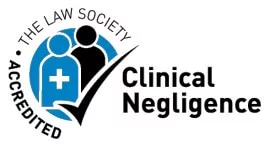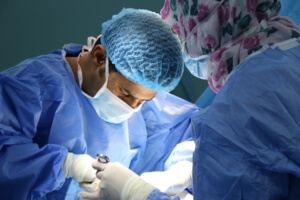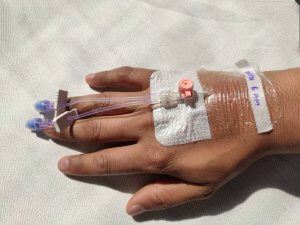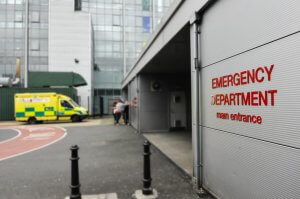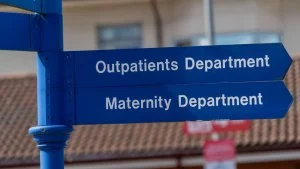Cosmetic Surgery Claims
Claim Cosmetic Surgery Compensation
At Osbornes Law, we specialise in cosmetic surgery claims, helping clients who have suffered harm due to negligent procedures, inadequate aftercare, or poorly qualified practitioners.
“Small but very effective and experienced team so every client benefits from the personal touch but also highly skilled litigation know-how. Capability of the team means they can handle all aspects of very complex cases as well as straightforward matters.”
“Stephanie Prior is just excellent. So hardworking and committed for clients whose personal circumstances are often extremely difficult. The claims are large and the legal and factual issues are demanding.”
“Osbornes Law is an established firm which handles a breadth of complex and high-value clinical negligence matters.”
Legal advice from specialist solicitors
Cosmetic treatment is now a multi-billion-pound industry in the UK, with over 100,000 procedures performed every year. From surgical facelifts to non-surgical treatments like Botox and fillers, demand continues to grow — but so do concerns about safety, standards, and regulation.
Peter Walsh, Chief Executive of Action Against Medical Accidents, described the sector as a “murky world” — and for good reason. A lack of consistent oversight and aggressive marketing tactics have left many patients exposed to risk, with limited options for redress when things go wrong.
A history of safety concerns
Public confidence in cosmetic treatment suffered a major blow after the PIP breast implant scandal, where it was revealed that 47,000 UK women received implants with double the usual risk of rupture. The scandal led to calls for tighter regulation, including restrictions on misleading advertising and aggressive sales tactics. While some reforms have followed, many risks remain — particularly in the growing market for non-surgical procedures.
Risks from non-surgical cosmetic treatments
Most cosmetic procedures performed in the UK are non-surgical, and this area is especially under-regulated. At present, there is no legal requirement for practitioners offering non-surgical cosmetic treatments — such as Botox or fillers — to be registered with the Care Quality Commission (CQC).
In many cases, individuals with limited training can advertise and carry out procedures with little or no oversight. Combined with fierce price competition and growing demand, this creates a high-risk environment for patients.
Common Non-Surgical Treatments and Associated Risks:
- Botox (Botulinum Toxin) – Used to smooth lines and wrinkles by relaxing facial muscles. Risks include drooping eyelids, raised eyebrows, asymmetry, and the need for corrective procedures.
- Dermal Fillers – Injections of hyaluronic acid or collagen used to restore volume or reduce wrinkles. Complications may include lumps, swelling, movement of filler, infection, or nerve damage.
- Chemical Peels – Designed to remove outer layers of skin and improve texture or pigmentation. Risks include permanent skin lightening or darkening, scarring, and infection.
- Laser Treatments – Commonly used for hair removal, skin resurfacing, or scar reduction. Side effects may include burns, scarring, and post-treatment pigmentation issues.
When can you claim for negligent cosmetic treatment?
Not every unsatisfactory cosmetic result is grounds for compensation — but you may have a valid cosmetic surgery negligence claim if:
- You were not fully informed about the risks or alternatives
- The procedure was carried out by an unqualified or poorly trained practitioner
- There was a clear error during the procedure
- You were given inadequate aftercare or follow-up
- You suffered avoidable harm, pain, or lasting injury as a result
How Osbornes Law Can Help
At Osbornes Law, our specialist medical negligence solicitors can advise you if you’ve suffered due to negligent surgery or cosmetic treatment. We understand how distressing it can be when something that’s meant to enhance your appearance causes physical or emotional harm.
We will:
- Review your treatment and medical records
- Obtain expert opinions on whether the care fell below standard
- Support you in seeking compensation for pain, corrective treatment, or psychological harm
- Handle your case with sensitivity, clarity, and care
Speak to a cosmetic surgery claims expert
If you believe you’ve been harmed by a cosmetic procedure — surgical or non-surgical — contact us today for a confidential, no-obligation consultation.
- Call 020 7485 8811, or
- Complete our online enquiry form
Contact us about Cosmetic Surgery Claims
Call us to speak with a lawyer 020 7485 8811
Email us Send us an email and we’ll get back to you
Osbornes is a very respected firm in the marketplace.
They handle really complex cases very well
The clinical negligence team are knowledgeable and professional in their approach and demonstrate a high level of skill in litigation work.
Osbornes Law offers experience in obstetric and fatal claims as well as niche cauda equina cases.
Osbornes Law is an established firm which handles a breadth of complex and high-value clinical negligence matters.
Osbornes has a skilled team of solicitors advising clients on a wide range of clinical negligence matters.
Hard working, approachable, good knowledge of clinical negligence and clients’ specific conditions
A joy to work with and always 100% client focused at all times.
The clinical negligence team at Osbornes is much lauded for its ability to ‘represent the diverse range of London-based clients
“The team is very quick and efficient in responding."
"Obsbornes Law is always client-focused and works tirelessly to obtain the best outcomes for clients."
‘They are ambitious for their clients and expect high standards from all who work with them.’
"Osbornes somehow combine the accessibility of a local firm, with the professional standards of a national or city outfit."
"Osbornes, is described as having ‘superb judgement and a medical knowledge that is second to none."
Stephanie has developed a particularly strong reputation for her handling of birth injury claims, as well as cases concerning surgical negligence and delays in surgery.
"An excellent firm which achieves fantastic outcomes for clients."
"Stephanie Prior takes on complex cases and gets excellent results. She has a background in medicine which serves her clients well and is a realistic but tough litigator."
"Stephanie Prior is hugely dedicated, adored by her clients, tenacious, efficient and extremely knowledgeable."
"Stephanie Prior is very good with troubled clients and is easily able to make them feel at ease."
"Stephanie shows sensitivity and deals with things in an understanding way."
Osbornes provides a very intimate and personal client service which is increasingly rare in this sector.
The lawyers in the team are highly experienced and will drive cases very hard on behalf of their clients.
"Stephanie Prior has a realistic attitude to the complexities of the cases. She wins the trust of her clients and goes the extra mile to ensure they get the best outcomes."
"Stephanie Prior... manages a varied caseload, including obstetric claims, child and adult brain injury cases and fatal and non-fatal spinal cord injury cases."
"Stephanie is experienced, knowledgeable of all aspects of clinical negligence work, and strategic in running cases."
"An exceptional outfit. They take on difficult cases, fight hard and win."
"The team were extremely professional in putting my needs first. There was a joined-up approach to catering for the client, and all lawyers involved were briefed and constructive."
Stephanie Prior is always very professional and kind. Highly recommended.
Quite simply excellent, with a highly competent and well-rounded team. They understand complex medical litigation and have been our lifesavers, and we will always owe them our immense gratitude.
Essential Reading
Types of cosmetic surgery claims we can help with
Tummy tuck
This innocuous-sounding procedure, a form of body contouring (another innocuous-sounding procedure), is in fact major surgery (abdominoplasty), which involves cutting open the abdomen and removing fatty deposits. Besides the usual risks of surgery, such as bleeding and infection, there will be a large surgical scar (usually below the swimwear line).
Eyelid surgery (blepharoplasty)
This is a common treatment designed to improve the appearance of the tissue around the eyes by reducing bags and shadow below the eyes and lifting the age-related droop common in the eyelids. The skin is cut open and fatty deposits removed. There is always a risk of damage with surgery so close to the eye, and scar tissue can distort the appearance of the eyes.
Liposuction
This is a popular procedure for removing those fatty deposits that may be resistant to more conventional, natural methods of body contouring, often around the abdomen, hips, bottom and thighs. Advantages include the relatively non invasive nature of the operation: it can be carried out under local anaesthetic and produces only a small incision, through which a small cannula is inserted and through which in turn the fat is aspirated. Complications are rare but can include infection, tissue damage and scarring.
Facelift/neck lift
Facelift surgery is one of the oldest and well established forms of plastic surgery. It is considered effective in improving the appearances of ageing and is often used in conjunction with surgery to the nose, ears and eyelids. It involves day case surgery to pull the skin away from the underlying fascia of the face and to remove excess fat and skin; smoothing out the skin of the face. This is however invasive surgery and it carries a risk of infection and other possible complications such as damage to the nerves supplying the facial muscles, tissue death (necrosis), bleeding and asymmetry.
Nose reshaping (rhinoplasty) and ear reshaping (otoplasty).
Rhinoplasty is the surgical remodelling of the cartilage in the nose to improve function or appearance. Non surgical techniques involve the injection of derma fillers. Otoplasty usually involves removing cartilage at the back of the ears to pin protruding ears back towards the head. Both procedures carry a risk of excessive bleeding, scar tissue and asymmetry.
Hair transplant treatment
This procedure involves the removal of a strip of hair follicles or single follicles of hair from a donor site at the sides or back of the head and their transplantation onto the bald or thinning areas, usually at the front and top of the head. If the operation is carried out badly it may result in infection, scarring and a non-viable transplant.
Whilst the prospects of serious injury are small, the risks of a failed of botched procedure that makes the face look worse than before are much higher, and when the patient has paid, usually thousands of pounds, to a private clinic for beauty treatment, they do not expect to look worse as a result.
In these cases we would look to bring a claim against the clinic and/or the practitioner in negligence and breach of contract for compensation for the ‘injury’ caused, the wasted treatment cost and the further cost of any remedial treatment together with any losses and expenses arising.
From October 2010, all private cosmetic surgery providers have to be registered with the Care Quality Commission (CQC) and comply with 16 safety and quality requirements, including ensuring the suitability of professionals to provide services.
Ensure that your surgeon is registered with the following and check out their qualifications:
-
British Association of Aesthetic Plastic Surgeons (BAAPS)
-
British Association of Plastic Reconstructive and Aesthetic Surgeons (BAPRAS)
-
General Medical Council
Cosmetic surgery claims often arise because the surgery has not been carried out with the necessary skill by the surgeons and nurses or because the treatment and aftercare following surgery has been negligent.
We recognise that when surgery goes wrong it impacts not only on the physical and financial wellbeing of the patient but also causes psychological and emotional distress.
If your treatment was negligently carried out you may be entitled to claim compensation. Our specialist compensation solicitors will deal sensitively and professionally with your cosmetic surgery claim, helping you to obtain redress for the mistakes made.
Can you make a claim for personal injury resulting from cosmetic surgery?
If you have undergone a treatment which did not leave you with the desired results and which you believe was carried out incorrectly contact us to speak to a member of our personal injury team who will speak to you in more detail about all aspects of your claim and let you know what documents you may need to provide to move forward in your claim, should you decide to proceed. Be assured that all information you provide us will remain confidential.
Contact our Medical Negligence Lawyers Today
Call us to speak with a lawyer 020 7485 8811
Email us Send us an email and we’ll get back to you
Medical Negligence News & InsightsVIEW ALL
- 12.5.2025
Complaints Against Suspended Surgeon Ms Kuldeep Stohr
Ms Kuldeep Stohr, orthopaedic surgeon at Addenbrooke’s Hospital suspended In February 2025, Cambridge University Hospitals NHS Foundation Trust (CUH) confirmed...
Read more - 4.4.2025
Time To Move On From Physician Associates?
BMA raises concerns over patient safety: the risks of Physician and Anaesthesia Associates in the NHS The British Medical Association (...
Read more - 13.3.2025
Addenbrooke’s Hospital Complaints
Review finds harm to children by surgeon at Addenbrooke’s Hospital An independent review by Cambridge University Hospitals NHS Foundation...
Read more - 19.9.2024
Report highlights failings in maternity care
The Care Quality Commission (CQC) has recently carried out a national review of 131 maternity inspections between 2022 and 2024, finding that failures...
Read more - 30.7.2024
What Is the Role Of a Physician Associate?
What does the Position of Physician Associate Mean for the NHS? There are many different jobs within the NHS, each...
Read more - 11.1.2024
New UK Supreme Court Ruling regarding Secondary Victims...
The Supreme Court has today, on the 11th January 2024, upheld the Court of Appeal’s order to dismiss the claims...
Read more - 11.1.2024
Secondary Victim Claims
Secondary victims in clinical negligence cases What is a secondary victim in clinical negligence cases? Most compensation claims are concerned...
Read more - 12.12.2023
NHS Compensation Payouts Guide
What Are NHS Compensation Payouts? In the UK, the National Health Service delivers the vast majority of healthcare services. When...
Read more - 31.8.2023
Can you sue the NHS for waiting times?
The NHS is facing an unprecedented challenge with 7.47 million people waiting for routine treatments. This crisis impacts everyone, from those...
Read more - 31.8.2023
Hyponatraemia – Symptoms, Causes & Negligence
What is hyponatraemia? Hyponatraemia is a condition where sodium levels fall below a certain level, which can be dangerous. All...
Read more - 10.8.2023
Ambulance Delays Affecting Rapid Patient Treatment
Failure to Meet Ambulance Response Targets In 2017, the Secretary of State for Health accepted the new ambulance performance standards recommended...
Read more - 26.7.2023
Private Healthcare Negligence
Can you claim medical negligence against a private hospital? Yes – it can be a little more complicated than bringing a...
Read more - 9.6.2023
Early Notification Scheme – is it helping or failing...
What is the Early Notification Scheme? The NHS Early Notification Scheme (“ENS”) has reached its sixth anniversary. Established in April 2017,...
Read more - 23.3.2023
Private Pregnancy Scans and Substandard Care
In the news, it has been reported that private clinics that offer pregnancy scans to women are not meeting the...
Read more - 14.2.2023
The risk of extravasation injuries during iron infusion...
Many patients with low iron, particularly during pregnancy or postnatally, may be advised they need an iron infusion such as...
Read more - 9.11.2022
Delayed transfer to Accident & Emergency causing harm
The Healthcare Safety Investigation Branch (HSIB) has identified that patients may come at risk of harm whilst waiting in ambulances...
Read more - 9.11.2022
Breast cancer screening mammograms and negligence
Breast cancer screening has improved significantly in the UK due to research bettering the understanding of this terrible disease, which...
Read more - 21.9.2022
Are maternity services safe? – Part 2
In April last year I wrote a piece about government setting up a taskforce to look into why there are...
Read more - 8.9.2022
Poor interpretation of CTG can result in stillbirth...
Poor interpretation of a Cardiotocograph, more commonly known as a CTG, is a leading cause of stillbirth and brain injuries...
Read more - 14.7.2022
Insulin overdose in hospitals due to limited staff...
A century ago, insulin was first used to treat a 14-year-old boy dying of type 1 diabetes. A hundred years later,...
Read more - 6.7.2022
NHS aims to reduce waiting times with Elective...
The NHS recently recorded their waiting list to be at 6.5 million, a record high. Much of this backlog is due...
Read more - 29.6.2022
Nottingham Maternity: Donna Ockenden to Chair Independent Inquiry
An interim report on the state of maternity services at Nottingham University Hospitals NHS Trust has just been released. However,...
Read more - 23.2.2022
Women from ethnic minorities experience worse maternity care
It has been reported today that the government has set up a new task force to look into why there...
Read more - 13.1.2022
Secondary Victim Claims
Court of Appeal Judgement on Secondary Victim Claims Judgment was today handed down by the Court of Appeal in the...
Read more






